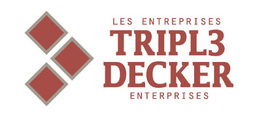|
With a few exceptions, most major cities in Africa have unreliable public transportation. Schedules are rarely kept and the vast majority of people tend to take informal transportation methods, like packing minivans to the limits in order to get from one area to the next. Unless you can afford a car and driver who can manage to find parking, personal transportation is usually not the primary means of getting around. The omni presence of taxis for short haul, be it cars, motorcycles or three wheeled taxis / Rickshaws / Tuk Tuk / Keke Marwa’s, or the use of private personal taxi companies such as Uber tend to be the solution. What we do not see as much of in Africa as we do in Europe, some parts of North America or many parts of Asia is the use of personal bicycles.
Coming from a “biking city” in Montreal, (although it is not one which remotely compares to cities like Copenhagen, Amsterdam and Beijing.) I understand that sometimes it takes a biking infrastructure to encourage people to start biking, but other times, like with any new idea, it just needs the right technology to be spread to the population. Montreal implemented a city-backed bike-sharing system many years ago. The concept is simple. Register for the system and pay a seasonal fee with free trips of 45 minutes or less along with per-use rates for longer trips, or higher per use rates if you decide to be a casual user. There are racks of bikes in several locations around the greater downtown area to start and finish your trips at. While many people have their own bikes and use the 350km of bike paths in the city, this rental service is convenient for short haul trips to and from work. Many other cities have similar sharing technologies like Paris, Vancouver, Boston and New York to name only a very few. An interesting new technology recently emerged out of China to incorporate the security aspect of docking bikes into the bike itself in order to be able to launch dockless bike sharing systems which have taken over the Chinese market. All of China is now flooded with dockless bikes as no fewer than a dozen of these companies have looked to seize market share by having their bikes found throughout the largest 30+ markets in China. The technology is very simple. All you need is a smartphone to download the bike sharing app and you can ride in China for less than ten US cents for a one way trip (of less than an hour). Most companies will take a deposit from you when you download the app. To rent your bike, you then only have to use your phone’s camera and the app to read the barcode of the bike. It will then remotely unlock the bike and you are good to go. When you finish your trip, simply slide the lock back into place and it will automatically deduct the completed ride from your account and/or charge your card. The advantage is that you can start and stop your trip anywhere, without having to look for (a sometimes full) docking station. Several of these Chinese bike-sharing companies have now raised hundreds of millions of dollars to start expanding internationally and the first few companies have hit a few US markets like San Francisco, Austin and Washington, DC. While the pricing is a lot higher in the US than in China, it is still relatively cheap (approximately $1 for a one way trip). While the US and Europe are ‘Safe” markets to implement these bike sharing models, the real growth will come from the developing world. A technology like this would have great success in multiple markets in Africa. Africans are generally very accepting of new technologies, especially if it has proven successful in the west and smartphone adoption is relatively high in many markets throughout Africa. If you are introducing a technology which will make short haul personal transportation easier, less expensive, and then you include the benefits to the reduction of pollution and greenhouse gas emissions, it seems like a winner. The question is, who will get there first? With dozens of companies crowding the Chinese market, don’t be surprised to see the first markets in Africa launch very shortly. The need is there and the markets are ripe for great ideas like this one. Derek Kopke is a senior business development executive and consultant. He’s traveled to over 65 countries and closed sales in over 80 countries across the globe. With an undergrad in education and an MBA in International Business, his unique world view and experience with cultures globally give him valuable experience which he has used to the benefit of companies interested in growing overseas. Derek is based in Montreal, Canada along with his wife and two teenage children.
0 Comments
Leave a Reply. |
AuthorWrite something about yourself. No need to be fancy, just an overview. Archives
March 2019
Categories |
|
© 2022 Triple Decker Enterprises
Copyright 2002-2019. All rights reserved. No part of this Web site may be reproduced or transferred to another Web site without express permission; instead provide a link to this Web site. To do otherwise is to infringe on the rights of Triple Decker Enterprises. All efforts are made to ensure the accuracy of information provided herein; however Triple Decker Enterprises cannot be held responsible for any errors or omissions. |
